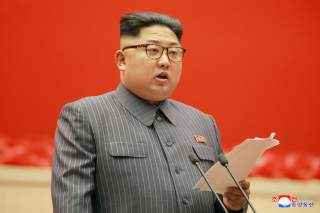What the New York Times Got Wrong About North Korea
"The problems with the Times story abound. North Korea never agreed to stop its nuclear development, and the sites in question were not hidden or secret since there has been no official disclosure of the sites. Moreover, Kim had publicly ordered the mass-production of nuclear warheads in his 2018 New Year’s speech."
North Korea knows that keeping its nuclear arsenal under current conditions is a matter of survival. Until those conditions change, you’d have to pry the weapons from its cold dead hands. It is up to the United States to create a security environment conducive to changing North Korea’s behavior. Creating a peace regime is requisite for the long-term process of denuclearization. The correct model for peace is U.S. arms talks with the Soviet Union during the end of the Cold War or Nixon’s rapprochement with China, not the draconian approach toward Libya or Iraq. History shows that the United States can negotiate with a country that possesses nuclear weapons.
To be sure, it’s possible the New York Times’ story might be a case of “once bitten, twice shy.” The newspaper may be overcompensating for its support of the 2002-2003 build-up to the Iraq War. This explanation would be ironic, however, since criticizing Trump’s approach toward North Korea today could have the same effect of supporting Bush’s approach toward Iraq years ago: whetting the appetite for war. Finally, as for the “great deception,” well, yes politicians and governments lie. Sometimes politicians spin the truth with good intentions. But the press has a special role in shaping the public’s understanding of events; newspapers write the first draft of history. If we don’t have a precise account of the events, the consequences could be deadly.
Devin Stewart is senior fellow and director of the Asia program at Carnegie Council for Ethics in International Affairs and a Truman Security Fellow. He has served as an adjunct professor of international affairs at Columbia University and New York University. The views expressed here are his own. Follow him on Twitter: @Devintstewart.
Image: Reuters.

